Where the Creativity of Business Meets Art
Fifth Interview: Passion x Creativity (Part 1)
19 January 2024
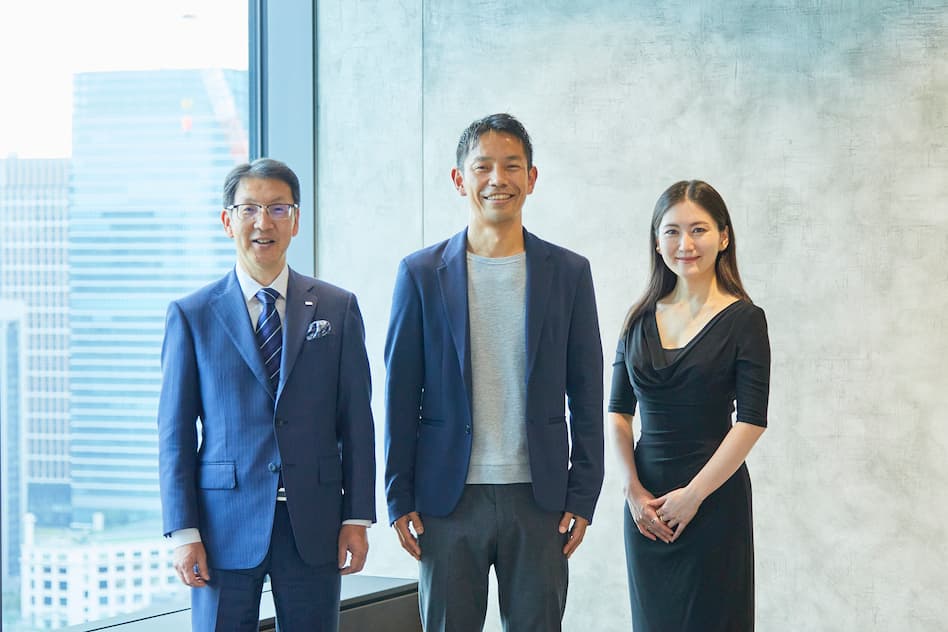
Okuda: Today, we have the pleasure of hosting Mr. Shintaro Nakayama, representative of Life as Caravan. Our guests, Mr. Nakayama and Ms. Ayako Tanaka, share two things in common. The first is their dedication to connecting people to create new and exciting value propositions. The other is Argentina. It's these shared interests that made me think we'd hear some fascinating stories in today’s discussion. We’ll hear more of the details later.
I wanted to do something to help people in different countries, having heard their cries for help (Nakayama)
Tanaka: Thank you, Mr. Okuda. Shintaro, you are a man of many hats, with your fingers in many pies. Is your main role currently the representative of Life as Caravan?
Nakayama: “Life as Caravan” is the name of my startup, which I’m working on individually, but I'm also involved in various other projects.
Tanaka: After graduating from university, you joined the Japan Bank for International Cooperation (JBIC), and your department later merged with the Japan International Cooperation Agency (JICA). What initially sparked your interest in international aid?
Nakayama: I played lacrosse in college and took a year off to study in Australia. Lacrosse is more competitive there than it is here in Japan, and I thought it'd be fun to play locally. But there weren’t any lacrosse teams in Brisbane, where I was studying, and I felt pretty lonely without any friends to share the sport with. So, I decided to start my own lacrosse team, eventually gathering about 20 people from various countries to practice and compete in tournaments. Despite our many different backgrounds, we shared the joy of victory and the agony of defeat through sport. Our experience brought us together like old friends, and we had a great time in the process. I was born and raised in Tokyo and knew very little about the world outside Japan, but playing lacrosse in Australia made me think about how exciting it would be to work internationally with people from different countries. Long story short, that’s why I applied to work at JBIC.
Tanaka: How was your experience once you joined?
Nakayama: In Australia, I put together the lacrosse team I mentioned, and back at university in Japan, I hardly studied at all. I spent most of my time either practicing with my teammates or drinking with them at night. During my job interview for JBIC, the interviewer told me as much, saying they knew I hadn't studied but would give me the job anyway because of the energy and positivity they heard in my voice. I really struggled once I joined, but it was an excellent experience to learn so much and have such intense training during my time there.
Tanaka: Is that experience still relevant to what you do now?
Nakayama: Yes, I think so. I've always enjoyed collaborating with people from different countries, working towards a common goal, and wanting to do something beneficial for the world. As a child in 1994, I was shocked by the news of the Rwandan genocide. It struck me that elementary school students my age in other countries were suffering while I was playing at home, completely unaware of what they were going through. This realization—that even though they might be calling for help, I couldn't hear them—stayed with me. I've always had a vague desire to aid in amplifying those cries for help, and I think that desire has led me to where I am today.
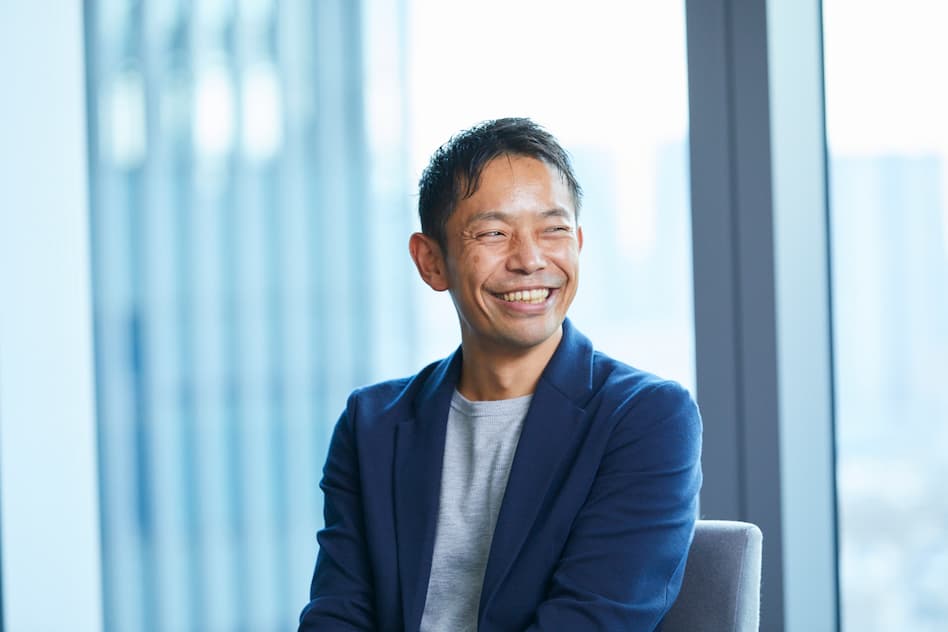
Tanaka: It's marvelous that you're now giving shape to that childhood desire. After JICA, you joined a trading company and later engaged in a corporate volunteering program. You describe your role there as an “partner,” a term I find intriguing, especially coming from someone outside of the world of music, where we also have accompanists. Could you share your experiences from that time?
Nakayama: After leaving JICA, I worked for a trading company for two years before joining Cross Fields in 2014, an NPO started by my university classmate to promote the corporate volunteering program you mentioned. This program dispatches employees from Japanese companies to NGOs and NPOs in developing countries. I was so impressed with the work that he was doing at the NPO that I decided to quit my job and join him. We matched the skills and experience of dispatched employees with the management challenges of NGOs in those countries, aiming to foster the growth of both the individual and the host organization. Our job was to assist volunteers in making meaningful contributions during their assignments so they could return to their organizations having grown themselves.
Historically, caravans blended civilizations to create new forms of culture and fields of study. They took something intriguing in one place—culture, art, and knowledge—to their next trading post. I wanted to do something similar, which inspired me to go independent. (Nakayama)
Tanaka: So that's what led you to establish Life as Caravan?
Nakayama: I saw so many other people working hard to make a difference, and it made me want to get out there and make a difference, too. And going independent seemed like the best way to do it.
Tanaka: I see. Was this around the same time that you joined at OUI Inc.*?
* A startup venture founded by an ophthalmologist at the Keio University School of Medicine on a mission to reduce global blindness by 50% and protect people's health through eye care.
Nakayama: I decided I’d get serious about doing what I thought was best, leading me to settle on the name “Life as Caravan” and embark on my independent journey. The word “caravan” refers to the Arab traders that traversed Europe, the Middle East, Africa, and Asia during medieval times. They instinctively took what they found interesting in terms of culture, art, and knowledge to their next trading destination, which led to the blending of civilizations and the creation of new cultures and academic fields throughout world history. I chose to start something of my own because I thought it could become a caravan of sorts, picking up anything I found interesting along the way. My first project for Life as Caravan was as the interpreter for the national Argentine rugby team during the 2019 Rugby World Cup in Japan. After that, I ran across OUI Inc. and am now responsible for the business side of things as COO.
Tanaka: I think it's wonderful to live a life pursuing what you love, one endeavor after the other, though I imagine it requires a lot of courage.
Nakayama: I vividly remember the morning after I quit my day job as a significant moment in my life. I woke up alone in my room and felt a tremendous surge of energy and unprecedented confidence. Until then, I had the title of vice president at Cross Fields, but I lost my title, my job, and my entire income overnight. I realized that if I lost my confidence, it would be the end of me. That’s probably why I felt so determined. I'm glad I had such a burst of energy at a time when I could have been least confident.
Tanaka: I guess it’s that sense that you really have to get serious once the safety net is gone, isn’t it?
Nakayama: Yes, I think you’re right. I realized that until then, I had been protected in a way and perhaps hadn't given it my all. So, I suppose, in that sense, it was for the best. How about when you chose to travel alone to Europe to start your singing career? Weren't you scared?
Tanaka: For me, I would say it was more like heading out on an adventure rather than any feelings of fear. But I can relate to what you just said because I was in the same situation where I had lost my safety net. I can also recall from my own experience that people become surprisingly driven when faced with a situation where there is no turning back and no alternative.
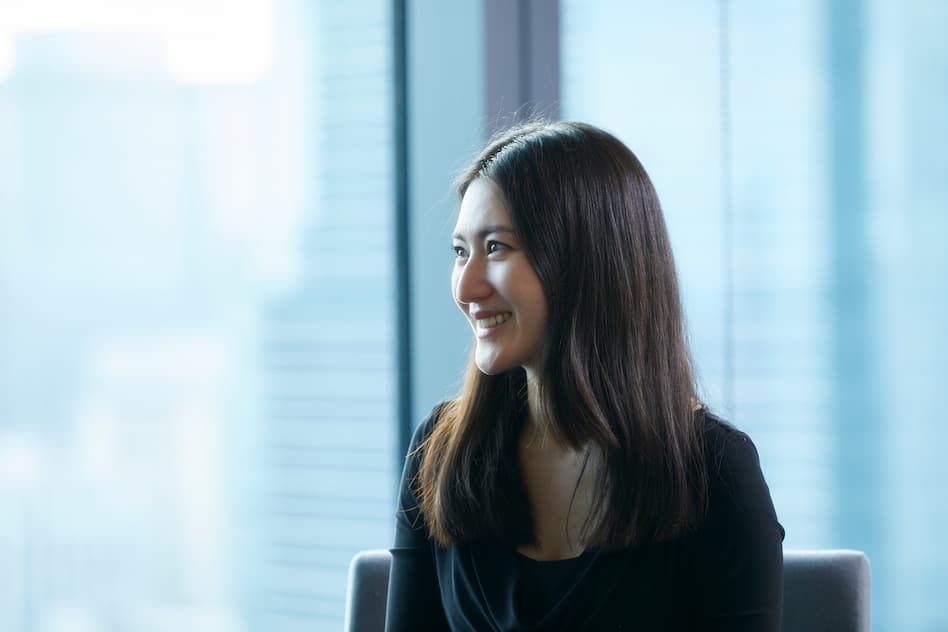
Nakayama: Of course, it's not that I want to fail—and I'm doing my best not to—but now that I know that even if I lost everything, I would just return to where I started, it doesn't scare me as much.
Tanaka: Is that why you feel you can give it your all?
Nakayama: I don't feel I'm giving it my all now. But I'm much more serious about my work, which gives me more energy. It’s almost as if my amount of energy has increased. Ever since I went independent and started to bring my whole self to work, it's almost as if my life has finally just begun.
I find it fulfilling to address unrecognized needs rather than just unmet ones, creating a flow of people, goods, and money to tackle a problem. (Nakayama)
Okuda: During the corporate volunteering program, you created a business by connecting people and matching the needs of developing countries with the abilities of Japanese employees. Are you doing something similar at your startup?
Nakayama: At Cross Fields, I would go to developing countries, ask them about their needs, and only then do a deep dive into potential solutions. Now, I dive headfirst into identifying needs on my own.
Okuda: It’s hard to see a common thread between your role as interpreter for Argentina’s national rugby team and your activities at OUI Inc. Do you have criteria for making these choices?
Nakayama: Not really, and I still don't know why I made those specific choices, but I suppose what they did have in common was that they both seemed interesting and challenging. Especially the “eye problem” I've been focusing on for the past four years at OUI Inc., which is worthwhile. There are 43 million people who are blind in the world, and another 2.2 billion with some form of visual impairment. More than half of those who go blind do so because of diseases that can be treated or prevented. The reason they go blind is due to a scarcity of ophthalmologists, most of whom reside in urban areas. For example, there are many people in rural areas in developing countries without access to eye care, resulting in blindness from diseases that could have been cured.
On the other hand, I have worked in developing countries with JICA and I can hardly remember meeting anyone with eye diseases. When I mentioned this to an ophthalmologist in Malawi, he said, “You just don’t get it.” Malawi has just 14 ophthalmologists for a population of about 20 million. When this doctor, who had obtained his qualifications abroad, returned home and visited a rural area, more than a thousand people were waiting to see him outside. People simply give up, thinking their eye disease is incurable, but many would undergo treatment if it were available. I find it rewarding to address unrecognized needs rather than just unmet ones, creating a flow of people, goods, and money to tackle the problem.
You seem like the kind of person who transforms chance encounters and friendly introductions into interesting business opportunities. (Okuda)
Okuda: I heard you ending up at OUI Inc. was a coincidence, that you happened to meet an ophthalmologist from Keio University. The way you identify and connect disparate needs is fascinating.
Nakayama: There was a student interning at JICA during my time there. He was from the same university as me and seemed lonely, so I'd ask him how he was doing whenever I bumped into him around the office. About ten years later, we ran into each other at an alumni reunion, and he asked me what I was up to. I had just started my own business then, and I told him that I was just trying to figure things out, to which he suggested that I might get along with one of his friends and asked if I wanted an introduction. That friend turned out to be an ophthalmologist at Keio University.
Okuda: So, you connected with this Keio doctor and heard about the issues in Africa. At what point did you decide that this could be a good match?
Nakayama: Meeting that doctor coincided with discovering a local ophthalmologist in Malawi who was interested in what OUI Inc. was doing. He approached us to discuss whether what we were doing could be implemented locally. So I headed straight to Malawi to see what we could do. During my visit, I quickly realized just how many people were suffering from eye diseases. In developing countries, eye diseases are often neglected as they don't seem life-threatening, but not having the ability to see can change a person's entire life. I find it rewarding to shine a light on their needs and draw attention to them through my work.
Okuda: So you’re the kind of person who transforms chance encounters and friendly introductions into interesting business opportunities.
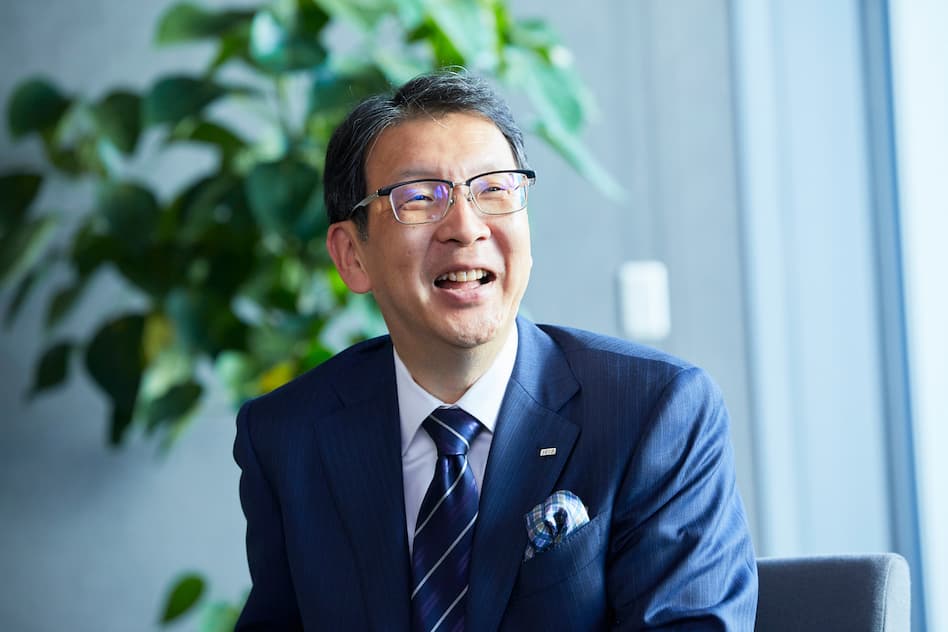
Nakayama: You make it sound impressive. You could just as easily say I'm winging it. [laughs]
Tanaka: It's as if your inherent belief in yourself enables you to succeed.
I believe things will work out as long as I have passion, a smile on my face, and am full of positive energy. (Nakayama)
Nakayama: In that respect, two anecdotes from Argentina come to mind. When I first started out on my own, I felt a surge of energy but had nothing to do. But since I was scheduled to interpret for the Argentine national rugby team, I thought I might as well visit the country and spend a couple of months wandering around. Whenever I introduced myself there, mentioning the name of my university or previous employer in Japan never resonated with local Argentinians, leaving me with little to say besides my name. Yet, for some reason, the local children seemed to like me. Even now, many of them still keep in touch with me. Having nothing but these children showing interest and wanting to be friends was a tremendous joy. It made me think that maybe that was all I needed. The other story happened as my interpreting job for the Argentine team was coming to an end. I was taking them to the airport for the last time when someone from the team came to me and said, “You have three great qualities: you're passionate, you always have a smile on your face, and you're full of positive energy.” It made me so happy to hear that from a top world athlete. It gave me the confidence that things would work out as long as I didn't lose those three qualities.
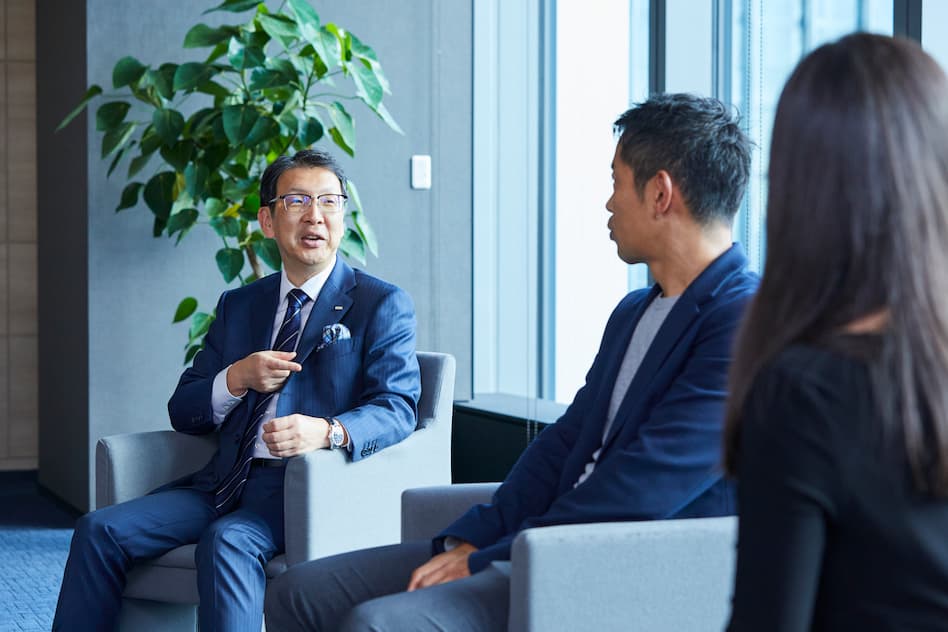
Tanaka: How did you wind up getting the job of interpreter?
Nakayama: An old acquaintance of mine was working with the World Cup organizing committee. They were looking for a Spanish speaker who could enter the players' locker room, preferably a male, and someone who could accompany the team for two months. And I just happened to be chosen as the right person for the job.
(To be continued)
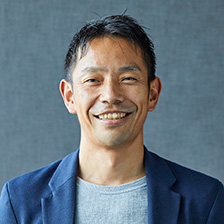
Shintaro Nakayama
Founder, Life as Caravan
Shintaro Nakayama was born in Tokyo in 1982. He graduated from the Hitotsubashi University Faculty of Law in 2006. After working in infrastructure development in the Middle East, Asia, and Latin America at the Japan Bank for International Cooperation (JBIC), Japan International Cooperation Agency (JICA), and Mitsubishi Corporation, he became the Vice President of non-profit organization Cross Fields before starting his own business, Life as Caravan, in 2019. He worked as the accompanying interpreter for the Argentina national rugby union team at the 2019 Rugby World Cup in Japan and is COO at OUI Inc., an ophthalmology startup launched at the Keio University School of Medicine, handling domestic and international business development.
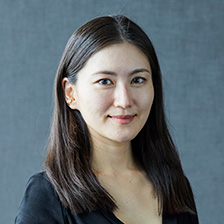
Ayako Tanaka
Soprano singer
President, Japan Association for Music Education Program
At the age of 18, Tanaka traveled to Vienna alone to study. At 22, she made her debut at the Stadttheater Bern in Switzerland, becoming the youngest soloist ever in the theater and the first Japanese person to perform there. Since then, she has performed in Vienna, London, Paris, Buenos Aires, and many other cities worldwide. Tanaka won “Best World Premiere Piece” by the Argentine Music Critic Association for her performance of Esteban Benzecry's “The 5 Cycle Songs for Coloratura Soprano and Orchestra" in Buenos Aires. The album received five stars from the BBC Music Magazine, the world's best-selling classical music magazine.
Tanaka is also engaged in giving back to society through activities such as the SCL International Youth Music Festival held in Vienna with the support of UNESCO and the Austrian government to assist young performers, as well as the National Youth Orchestra of Argentina, which was established with the support of the Argentine government to provide education to young people of various backgrounds and family situations through music.
Tanaka was named one of Newsweek's "100 Most Respected Japanese in the World" in 2019. She sang the Japanese national anthem on October 22 at the opening ceremony of the SMBC Nippon Series 2022. Born in Kyoto, Tanaka lives and works in Vienna.
RELATED STORIES
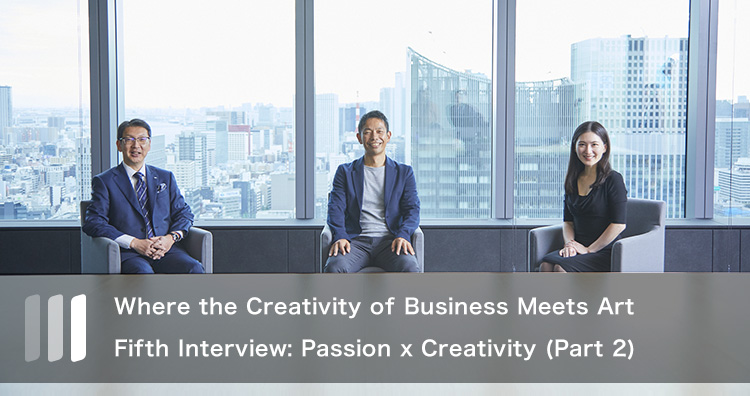
Where the Creativity of Business Meets Art Fifth Interview: Passion x Creativity (Part 2)
Today, we have the pleasure of hosting Mr. Shintaro Nakayama, representative of Life as Caravan.

Where the Creativity of Business Meets Art Fourth Interview: Advanced Technology x Creativity (Part 1)
Today, we're honored to have Dr. Masakazu Sugiyama, Director of the Research Center for Advanced Science and Technology…

Where the Creativity of Business Meets Art Fourth Interview: Advanced Technology x Creativity (Part 2)
To me, tonal quality is an expression of emotion that communicates a feeling directly.

